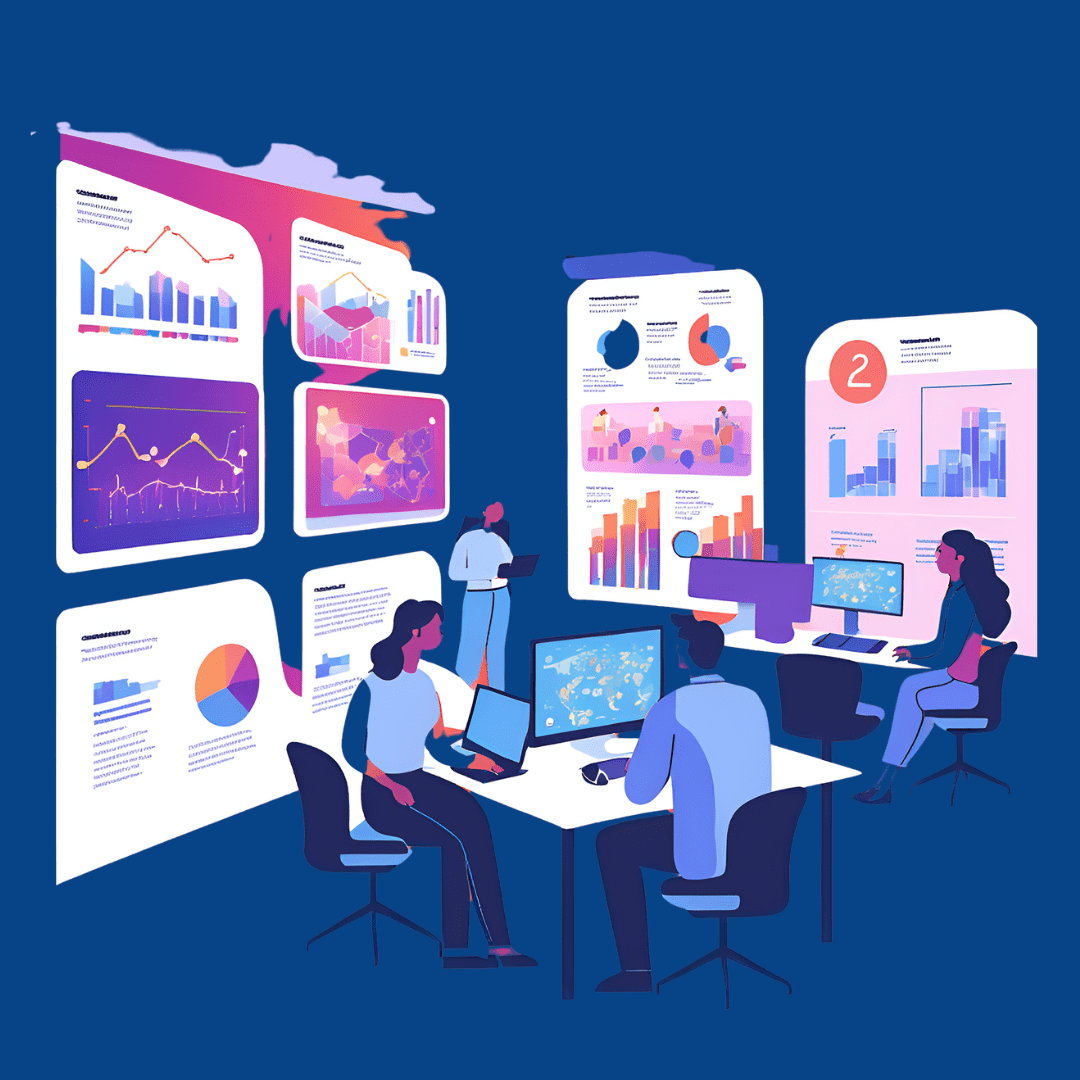
For generations, market research has been part and parcel of the business strategy process in providing important insight into consumer behavior, trends within markets, and competitive landscapes. However, with rapidly changing technology, the future of market research is in for dramatic change. Nevertheless, artificial intelligence, big data, and advanced analytics are innovative methods that not only extend possibilities but also pave the way for newer methods promising even better insights that are more accurate, timely, and actionable. What follows is an exposé of the core technologies and trends driving the future of market research.
Artificial Intelligence: Revolutionizing Data Analysis
Artificial intelligence is the technological force propelling market research. AI algorithms can process vast amounts of data at rapid speeds and with greater accuracy than humans, uncovering insights that might otherwise go unnoticed.
AI-Powered Surveys and Chatbots: AI is changing the way questionnaire-based surveys are conducted. Now, using intelligent chatbots, one can engage a respondent in real-time discussions to make it all the more interactive and personalized. The chatbots themselves are able to rephrase questions according to previous answers, ensuring the collection of relevant data. Beyond this, AI can further assist in reading open-ended responses, identifying trends and sentiments—no manual coding needed.
Predictive Analytics: AI’s predictive capabilities empower companies to forecast future trends in the business world. Analyzing historical information, AI extracts trends that could let it predict consumption habits of the customer, turns of the market, and pending risks against which a corporation must be protected.
Big Data: Unlocking Deeper Consumer Insights
The big data revolution has changed the way businesses view their customers. The vast amounts of data produced through various forms of digital interaction offer an opportunity to gain deeper insights into consumer behavior than ever before.
Integration of Multiple Data Sources: Big data allows for the integration of various data sources ranging from social media to transactional data to third-party databases. This holistic view of the consumer allows firms to track emerging trends in their industries, understand consumer preferences, and map these with offerings.
Real-Time Data Analysis: Earlier, the market research used to be retrospective as the data was collected over a period. Big data can be analyzed in real time, which further allows the businesses to take appropriate necessary action as changes happen in the market. Such agility is crucial for survival in today’s fast-paced market environment.
Advanced Analytics: From Descriptive to Prescriptive Insights
Advanced analytics—including machine learning and predictive modeling—are taking market research far beyond its traditional scope. These techniques go beyond simply describing what has happened, to predicting what will happen and recommending actions based on those predictions.
Sentiment Analysis: Companies can use their advanced analytics to do sentiment analysis on social media sites and other sites for public feeling about their products, brand, or service. In most cases, the analysis delves deeper than merely understanding raw metrics related to consumer attitudes and emotions.
Prescriptive Analytics: While predictive analytics forecasts future outcomes, prescriptive analytics offers recommendations on the best solutions to achieve desired results. It is particularly beneficial for developing marketing strategies, enabling businesses to improve their campaigns and product releases by following data-driven recommendations.
Ethical Considerations and Data Privacy
With the growing application of AI and big data in market research, interest in data privacy and ethics grows. Consumers are increasingly aware of how their data is used, and businesses walk on thin ice between mining data for insights while being respectful toward the privacy of consumers.
Transparency and Consent: The companies that collect and process should, hence, be transparent to their consumers about how they source and use the data. Getting explicit consent, coupled with control over such data given to the consumer, is of great importance. This will be the most important practice in the future.
Ethical AI: The deployment of AI in market research must be guided by ethical considerations. This includes ensuring that AI algorithms are free from bias and that decisions made based on AI insights are fair and equitable. Also, check Data Analysis.
The Rise of Augmented Reality (AR) and Virtual Reality (VR)
AR and VR are fast turning into potent tools in market research, primarily in the understanding of consumer behavior and choices in simulated environments.
Immersive Research Environments: AR and VR enable the creation of environments where researchers can observe consumer reactions to product or service ideas. This type of research more closely mimics real-world behavior compared to many other, more conventional methods..
Enhanced Product Testing: The key advantage of using AR/VR is that it can replace product prototyping, thereby saving time and resources. Companies can test their products virtually to see how they perform and make rapid iterations in response to consumer feedback.
Personalization and Hyper-Targeting
The market research of the future naturally has something to do with personalization and hyper-targeting, enabled by advanced data analytics and AI.
Customized Consumer Experiences: If businesses analyze individual consumers, they will be able to integrate specific needs and preferences. This level of customization is expected to be on the rise as consumers want their brands to know what they want before demanding it.
Micro-Segmentation: Traditional market segmentation is giving way to micro-segmentation, where consumers are grouped into increasingly smaller segments based on precise criteria. This allows for more targeted marketing strategies that can yield higher conversion rates.
The Role of Social Media and Influencer Analytics
Social media remains an absolute goldmine of data for market researchers in the present times by giving real-time insights into consumer opinions, trends, and brand perception.
Influencer Impact Analysis: As influencer marketing continues to grow, so does the need to track its effectiveness. Advanced analytics tools can now assess the impact of influencers on consumer behavior, helping brands choose the right partners and strategies.
Social Listening: Social listening tools grow increasingly sophisticated, allowing businesses to track brand mentions and sentiment, along with up-and-coming trends across social media. This is real-time information that keeps you miles ahead of the competition.
Conclusion
The future of market research looks very bright, given emerging development in technologies with high speed, such as AI, big data, and advanced analytics. These will improve not only the conventional research processes but also enable absolutely new steps in the attempt to deliver ever more precise and actionable insights. However, it is logical enough that, with such technologies, businesses that are widely adopting them advance and must address certain ethical and data privacy considerations. In this way, companies maximize the full potential of these innovations to stay ahead in an increasingly competitive market.
1. What role does AI play in the future of market research?
AI revolutionizes market research by enabling faster, more accurate data analysis, predictive analytics, and personalized consumer engagement through AI-powered surveys and chatbots.
2. How is big data changing market research?
Big data allows for the integration of multiple data sources and real-time analysis, providing deeper consumer insights and enabling businesses to respond to market changes more quickly.
3. What are advanced analytics, and how do they impact market research?
Advanced analytics, including machine learning and predictive modeling, provide insights that go beyond description, offering prescriptive recommendations and nuanced sentiment analysis.
4. What ethical considerations should be taken into account in modern market research?
Key ethical considerations include transparency in data usage, obtaining consumer consent, and ensuring that AI algorithms are unbiased and used responsibly.
5. How do AR and VR technologies contribute to market research?
AR and VR enable the creation of immersive research environments, allowing for more realistic product testing and consumer behavior analysis without the need for physical prototypes.
6. What is the significance of personalization in the future of market research?
Personalization, enabled by advanced analytics and AI, allows businesses to create customized consumer experiences and implement hyper-targeted marketing strategies.
Explore More :


